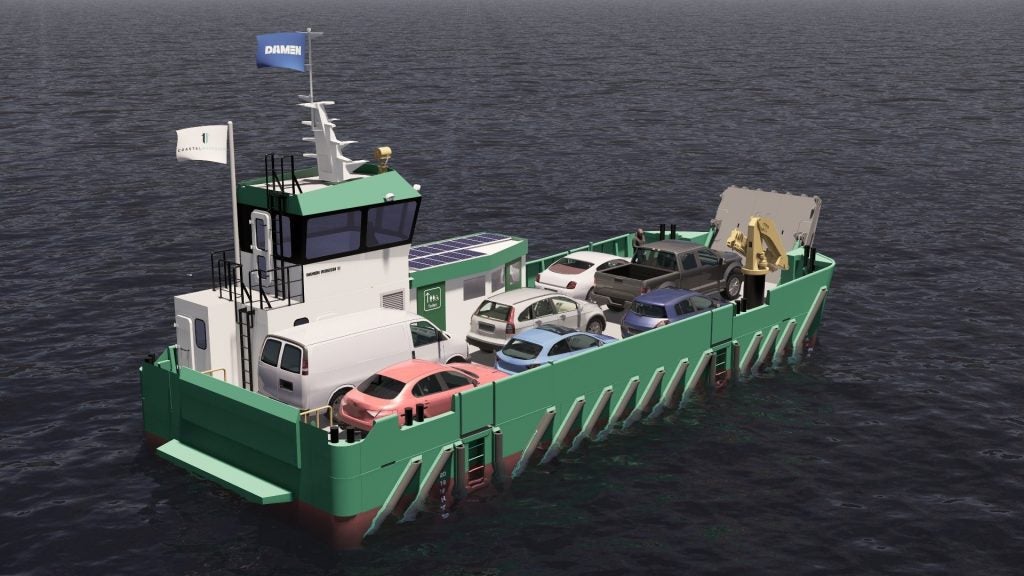

There’s a question that every industry and business is starting to confront as we approach the date on which the British public have their say on the country’s decades-long membership of the European Union (EU): are we better off in or out?
For the shipping sector, the short answer is that currently, we simply do not know. You can copy and paste this for pretty much any sector.
Making a prediction on a situation where there is no precedent (no country has ever left the EU before) is a dangerous game. There is great uncertainty. The Remain and Leave campaigns are doing their utmost to change this; pumping out grandiose rhetoric designed to convince voters that their cause is the one to follow.
According to analysts at IHS Global Insight, the chances of the Leave group getting their way stand at between 35% and 40%. Of course, the problem, and the focus of debate here, lies in what happens after June 23. “We do not know [how it will play out] because the economic model and the exact nature of the trade relationship between the UK and the EU post such withdrawal is not currently known,” says Simon Murfitt, consultant solicitor at Keystone Law.
“Furthermore, it will not be known, with any reasonable level of detail, until at least two years after the decision to leave the EU is made, as this is the agreed period of negotiation for any such withdrawal.”
How well do you really know your competitors?
Access the most comprehensive Company Profiles on the market, powered by GlobalData. Save hours of research. Gain competitive edge.

Thank you!
Your download email will arrive shortly
Not ready to buy yet? Download a free sample
We are confident about the unique quality of our Company Profiles. However, we want you to make the most beneficial decision for your business, so we offer a free sample that you can download by submitting the below form
By GlobalDataThe single market and the trade relationship
What is certain – and even the staunchest Leave campaigner would be unlikely to question it – is that access to the EU’s single market and free-trade principles is, at a basic level, hugely beneficial for trade and shipping. Guy Platten, chief executive of the UK Chamber of Shipping, said in November 2015 that it has “helped to drive growth in trade with our closest neighbours”, adding: “The loss of tariffs and increased competition in the supply chain has boosted custom, driven down costs and allowed the conditions for job creation, economic and social progress.”
For shipping, the implications of a change in the relationship between the UK and the EU, or Brexit, as it is commonly known, are numerous. The sector employs 250,000 people and moves 95% of the UK’s international trade. Moreover, approximately 50% of this trade is conducted with other EU member states and 40% of goods traded within the union are moved by sea.
These figures, compiled by the UK Chamber of Shipping, demonstrate the seriousness of the debate. For while the referendum represents the zenith of Eurosceptics’ political careers and their long-held beliefs, at the industry and trade levels the arguments are – not always, but most of the time and in public, at least – far more figure and economics-based.
“Major UK manufacturers, such as the car industry, depend on the free movement of goods, and to a lesser extent people, in and out of the UK and within the EU,” says Murfitt.
Should that be threatened or restricted, he adds “it can be expected that certain major players in this industry, who already have production facilities elsewhere in the EU, may well make production location changes”. This could then have knock-on effects for UK shipping in terms of volume and therefore levels of use and employment, he warns. “With any withdrawal from a single economic market, there is the very real possibility of new physical and administrative barriers for both imports and exports.”
An added layer of EU regulation
What also has an influence on UK shipping, and this is a common criticism of the EU, is the spectre of ever-closer union and what has been termed the ‘added layer of EU regulation’.
In its analysis, ‘A Maritime Nation: UK Shipping and the EU’, the UK Chamber of Shipping outlines how transport is considered a “shared competence”, meaning that both the EU and its member states can put forward legislation. A large percentage of regulations are also passed down from the International Maritime Organization (IMO).
“If the European Commission truly believes in competiveness, it must understand that in an industry where global regulation exists, too much regional regulation is asking for trouble,” Platten said in September.
Platten goes on to highlight worries about EU “mission creep”, and, as he describes, “the negative impact regional gold-plating of regulation can have upon the shipping industry, which reduces the ability of EU members to compete in the global market”.
One example of this added layer comes with sulphur emissions. In 2005, the IMO tightened its regulations on reducing these emissions in designated areas – Sulphur Emission Control Areas (SECAs), but, says the Chamber, recognised some of the difficulties associated with scrubber technology, as well as concerns over low sulphur fuel availability. Therefore, the cut-off date for implementation was intended to be flexible. But, the report states: “An EU Directive on sulphur (2012/33/EU) did not allow for such flexibility, and came into force in full on 1 January 2015.”
UK Chamber of Shipping’s director of policy David Balston summed it up succinctly: “When a regional power such as the EU creates its own regulation,” he told the Chamber’s website, “then [the] global level playing field becomes distorted, and major maritime nations such as the UK feel the impact more than most.” Such words indicate that no matter how positive the industry is with regards to the single market, the EU is seen as too flabby and in some cases a meddlesome nuisance.
A vote to leave: what happens next?
Should the Leave campaign emerge victorious, what will happen? Current polls, of which there are many, suggest that it could be too close to call. Uncertainty is a theme that runs throughout, but the government would need to set in motion the apparatus that facilitates withdrawal. This would come in the form of painstaking negotiations with other member states and heads of the EU.
For shipping, there would be an extremely close eye on the free-trade agreements being put in place. “The UK is the rest of the EU’s largest single export market and hence it is reasonable to presume that the chances of the UK securing some type of free-trade agreement with the EU post exit are good,” says Murfitt.
Whether the case or not, such an all-encompassing trade deal is not the main issue here, he continues. The worry “is the length of time and associated costs required to get any such deal in place. As the path for such an exit is literally unchartered waters, no one can reasonably estimate such costs and time frame”.
“There is currently no reason to presume that operations will not continue under current regimes during the initial two-year negotiation period, however it is almost certain that key players will begin to explore and implement new post-EU membership operations and practices,” Murfitt adds.
Speaking to Reuters in April, Platten voiced his concern that Brexit negotiations would not be easy or swift, even claiming that the EU could punish the UK for leaving in a bid to “discourage others” from doing the same. Murfitt says he would not use the term punish, but “it is obvious that whatever post exit deal the UK negotiates for its shipping industry, it will not be as favourable as those enjoyed by EU members”.
Lloyd’s Register executive vice president Tom Boardley has also highlighted a hitherto under-reported argument that efforts to attract more ships to the UK register could be hampered.
What the industry thinks
Taken in isolation, comments like this portray a pro-EU message from industry. This is reinforced by two surveys. In May 2014, Maritime UK spoke to 100 chief executives of shipping, ports and maritime business services.
In response to the question, ‘Should the UK remain in the EU?’, 80% answered ‘yes’, 65% wanted the EU to scrap the principle of ever closer union, while 69% replied the IMO should be the principal regulator of the European shipping industry. Just 16% believed it should be the EU.
A UK Chamber of Shipping survey, held in September 2015 and covering 149 professionals, showed 65% believe that being part of the EU has a positive impact. Interestingly, however, just 48% said that UK membership of the EU was important to their business. Platten said at the time it showed “whilst the global shipping industry supports the principles of the EU, the jury is still out on the idea that Brexit could damage the industry”.
It goes back to an earlier point about the EU having its fingers in lots of different pies, the global nature of shipping, and the belief the UK is one of, if not the number one, maritime world leader. Voting to leave the EU would not cause immediate inertia.
London’s status as a leader for marine insurance could be under threat, however, according to Dan Glaser, chief executive of insurance broker Marsh & McLennan. He told IHS Fairplay: “The London market is a community that prides itself as a global centre point for marine insurance business and there is a significant amount of business that comes to London from the members of the EU.”
What of Prime Minister David Cameron’s renegotiation? The Conservative leader has consistently pushed his message that he has secured significant reforms, but analysts say that it is unclear how this deal will affect shipping.
Back to the message of uncertainty. On the whole, and taking into account views on the single market and the surveys, the industry is leaning toward a vote to remain part of the union. Even so, there is anti-EU feeling among the ranks. In or out? The debate will continue to rage.






